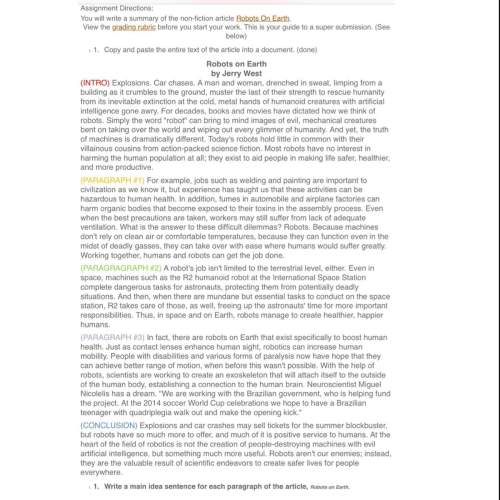
English, 07.05.2020 03:08, anaclaramigli
I need a Complex sentence, Compound sentence, clause and a simple sentence——————-What is the difference between science and pseudoscience? According to Karl Popper, one of the most 1[Marker for question 1] potent philosophers of the twentieth century, it is a matter of falsifiability. He claimed that in order to be considered truly scientific, a hypothesis or theory must be capable of being proven false. 2[Marker for question 2] Next, he decided to make an assertion: Popper offered a new perspective on the distinction between science and pseudoscience.
In a 1953 lecture at Cambridge University, Popper shared that the concept of falsifiability had first occurred to him more than thirty years earlier, 3[Marker for question 3] when he was pondering and considering Einstein’s theory of gravitation and Freud’s psychoanalytical approach. Popper realized that Freud's approach has great “explanatory power,” because psychoanalysis can be applied to completely opposite behavior patterns with equal aptness. Although this flexibility might seem valuable, Popper argued that a theory which cannot be proven false—one which can ‘adapt’ to any critical environment—is not science but pseudoscience. The critical component of a scientific theory is the element of risk; 4[Marker for question 4] its value lies in predictive rather than explanatory power. 5[Marker for question 5] Einstein’s theory of gravitation was scientific because it made concrete predictions about what we should observe in the future, and therefore could be falsified if inconsistent 6[Marker for question 6] to these observations.
Popper’s choice of falsifiability as the line of demarcation between science and pseudoscience initially seemed counterintuitive to many scientists and philosophers. Traditionally, the difference had been located in the process of observation and experiment. In addition, many researchers preferred hypotheses that seemed less likely to be proven false. 7[Marker for question 7] However, many members of the scientific community may have, at least initially, misunderstood the concept of falsifiability. The overarching objective of Popper’s approach is not to choose the weaker 8[Marker for question 8] hypothesis and choose the hypothesis that will lead us toward truth. Because scientific theories can never be proven true, our progress depends on using theories that, like Einstein’s theory of gravitation, can be proven false. Statements without predictive power are 9[Marker for question 9] static because,_ they cannot be disproven, we cannot move forward.
Although the distinction between science and pseudoscience 10[Marker for question 10] remains controversial, falsifiability has many valuable implications for the scientific method and beyond. Although Popper devised this concept to answer a particular question, he believed that it was the key to answering many other problems as well. Falsifiability can be applied universally because we search for truth in all areas— 11[Marker for question 11] even though Freud's psychoanalytic approach is still studied.

Answers: 2
Other questions on the subject: English

English, 21.06.2019 17:00, s122784
Using apostrophes, hyphens, dashes, brackets, and parentheses correctly correct each error in the use of apostrophes, hyphens, dashes, brackets, and parentheses in the following sentences. you may need to add, delete, or change marks of punctuation. doesnt this turkey look oh, no, the cat must have gotten up on the counter!
Answers: 1


English, 21.06.2019 21:00, aylin5044
It is important to learn about finances. take, for instance, the old rule of saving ten percent of every paycheck. are most people aware that theyshould immediately take that percentage out of their paycheck and put it into savings? balancing your checkbook is another important element ofkeeping track of your money. buy a money tracking program and use it to manage your money. another important tip is to speak with a financialplanner and learn about stocks and bonds. come up with a savings plan that includes a 401k, stocks, and bonds. and start young. the longer youwait to save, the less compound interest you will accumulate. which is the best title for this paragraph?
Answers: 3

Do you know the correct answer?
I need a Complex sentence, Compound sentence, clause and a simple sentence——————-What is the differe...
Questions in other subjects:

Mathematics, 16.12.2020 08:00

English, 16.12.2020 08:00



Mathematics, 16.12.2020 08:00












